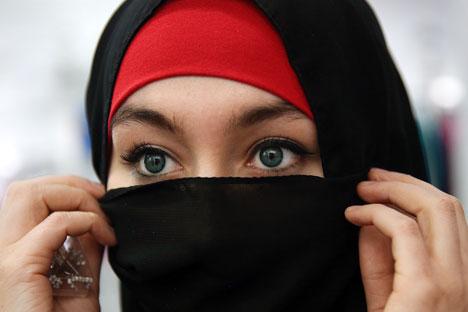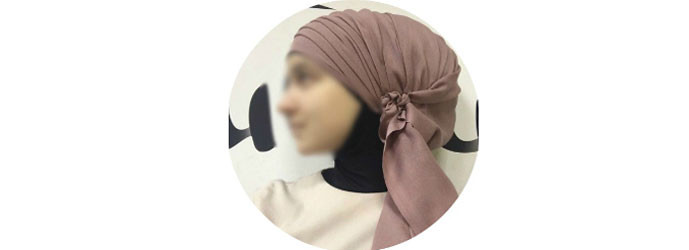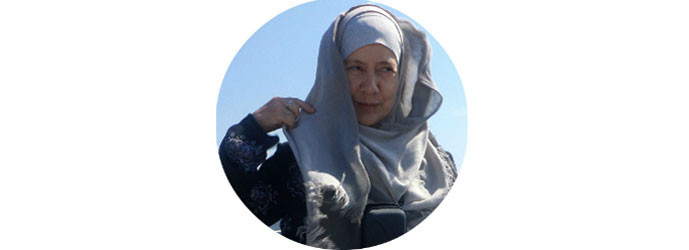The attraction of Islam for some Russian women

A Russian Muslim woman.
Valery Sharifulin / TASSA majority of people in Russia adhere to the Russian Orthodox Christian faith, but Muslims are not considered either exotic or alien in the country. Unlike European nations, where Islam was brought in by migrants, many indigenous peoples professed Islam in Russia for centuries and lived side by side with Christians. During the Soviet era however, all religions were frowned upon. The collapse of communism led to a rapid return to Orthodox Christianity and Islam.
There are no reliable statistics today about the number of Muslims in Russia. The latest census questionnaires do not ask a citizen to state his or her religion. The number of Russian Muslims is usually calculated by adding members of all ethnic groups in the country, which are traditionally Muslim, like Tatars, Bashkirs and Chechens. Therefore, according to the latest data, there are between 16 and 20 million “ethnic Muslims,” in Russia, around 12 to 15 percent of Russia’s population.
There are also “new Muslims;” those who were not Muslims or professed other faiths, and later converted to Islam. “Such cases are pretty rare, but in Russia they get more publicity, than when Muslims convert to Orthodox Christianity,” says Nikolay Silaev, a senior fellow of the Centre for the Regional Security and Caucasus Studies. Available data on the number of religious conversions in Russia is not sufficient to indicate a trend, he adds.
We interviewed three women who chose to convert to Islam.
Valeria, 22, converted to Islam five years ago

*Valeria requested that her photograph be blurred.
“I grew up in a Christian home and my decision to become a Muslim shocked my family. At first they thought about the worst stereotype. They believed I would blow up buses and trolleybuses in the near future.
Nevertheless, I am very grateful to my family for respecting my choice. This especially goes for my mother, who accepted my decision in a relatively short time and even defended me among family and close friends.
After converting, I began to study Islam, and in three months I started to perform prayers (namaz). Two months later, I started wearing a hijab.
Then I met my future husband. He is an ethnic Tatar, but his family did not adhere to Islam. Living together, we have finally established ourselves in our faith.”
Ulyana, 30, converted to Islam seven years ago

“I was interested in Islam since childhood. At university I learned the basics of the religion and Arabic. I had many Muslim friends, whose behavior was completely different from what was considered ‘normal’ in my society. This is why I decided to convert to Islam. My parents and close friends were understanding of my choice, as they were expecting it.
I do not wear a headscarf, and only cover myself during prayers. At first it was also difficult to fast, but I got used to it in three years. It’s also difficult to fight the stereotypes about Islam.
Many people believe that Islam is a cruel religion. I categorically disagree with such views. All the divine teachings are created by a great amount of love.
There are a lot of stereotypes about Islam, for example, that Muslims ‘kill infidels, stab poor animals, beat their wives and do not accept non-believers.’ The reason for this attitude is ignorance. If you do not understand something or fear it, you should find out, whether those fears are realistic or not. Most fears disappear when there is increased awareness and communication with proper practitioners of the religion.”
Zeinab (Elena) 55, converted to Islam 10 years ago

“It was in the late 90s. My husband and I traveled to Egypt as tourists. It was my first visit to a Muslim country. I saw people with a completely different mentality and attitude towards life. Having plunged into this culture, I became very interested in the Arab world, and I began to study the Koran.
When I was 40 years old, I told my husband that I wanted to convert to Islam. My husband and children understood and reacted calmly to my decision. But it did not go so smoothly with my mother. Basically, the problem was the headscarf. But the situation was resolved. Now my mother even buys me halal food. Within four years, my eldest daughter also converted to Islam.
Shortly after embracing Islam, I realized that I changed a lot and that I wasn’t Lena anymore. I then decided to take a Muslim name.
I worked as an English and German technical translator. When I put on the hijab, my co-workers began to treat me poorly. I was fired over a trivial matter. I was very upset, but two months later, I received an offer from a competing firm, which offered a similar job with a bigger salary. I told them that I wore a headscarf, but they said it did not matter what I looked like, as they needed my expertise.
I want to change society’s attitude to Islam by setting an example. People don’t want to listen to a long speech about Islam. They look at your deeds. A true Muslim is good to every single person, not just to fellow Muslims.”
All rights reserved by Rossiyskaya Gazeta.
Subscribe
to our newsletter!
Get the week's best stories straight to your inbox